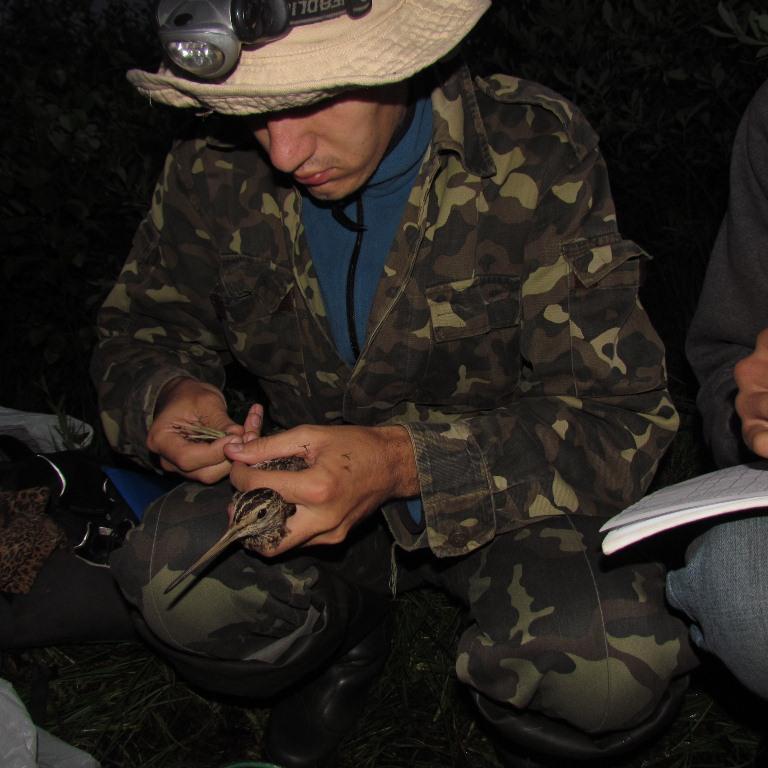Iurii Strus
Other projects
14 Jul 2014
Distribution, Population Size, Habitats and Conservation of Common and Great Snipe in Western Polissia Region
20 Dec 2016
Study and Conservation of Rare Waders (Charadrii) in the Ukrainian Forest Zone
The project main goals are (1) to study current numbers, distribution and habitat preferences of rare waders on fen mires in Ukrainian forest zone in order to undertake precise conservation measures and (2) to increase awareness of local people through published materials, personal conversations and lectures.

Populations of many waders in East Europe showed strong decline in numbers in recent decades. This was caused mostly by artificial drainage of wetlands in XX century, changes in agricultural practice since 1990-s, hunting and to some extant climate changes. Among most vulnerable species are those which breed in the wettest types of habitats like mires, wet meadows etc. Among waders of Ukrainian bird fauna such species as Lapwing, Black-tailed Godwit, Common Snipe, Great Snipe, Eurasian Curlew can be classified as vulnerable even thou first three species are still recognized as ‘rather common’ but with strong decreasing trends in numbers. Distribution and numbers of Lapwing and Black-tailed Godwit were studied in detail during our research in 2009-2013. Distribution and numbers of Common Snipe and Great Snipe were partially studied during implementation of our first project supported by RSGF (in western parts of Polissia).
In current project we plan to extend our study of Snipes farther to the east and pay more attention to fen mires of central Polissia. Also we plan to include one more, rare species to our study - Eurasian Curlew which is breeding on some big fen mires of central Polissia according to our preliminary surveys in 2008-2014. Last detailed studies of waders on fen mires of central Polissia were conducted in mid-1980s. Thus, we don’t possess up to date information about numbers and distribution of target species in the region. Our study should fill this gap in knowledge and our opinion it will be good basis for further monitoring of rare waders in the region. All gathered data will be mapped and stored in databases which we will provide to local nature conservation institutions.
Study areas are located in remote parts of north-west Ukraine with very bad infrastructure, poor local residents and comparatively low level of ecological education. So we aim to distribute relevant published materials in local schools, forestries and in some small villages in the vicinity to borders of nature reserves. Also we will organize seminar for local forestry workers and lectures for hunters and to distribute among them additional published materials. All this measures will contribute to increasing of ecological awareness of local communities.